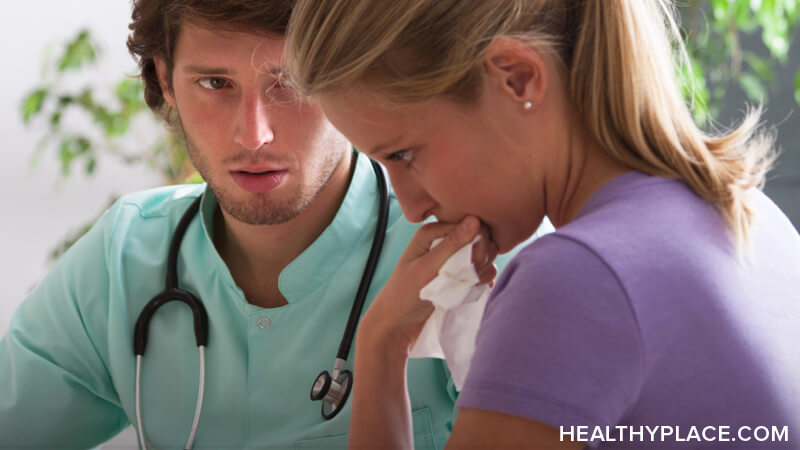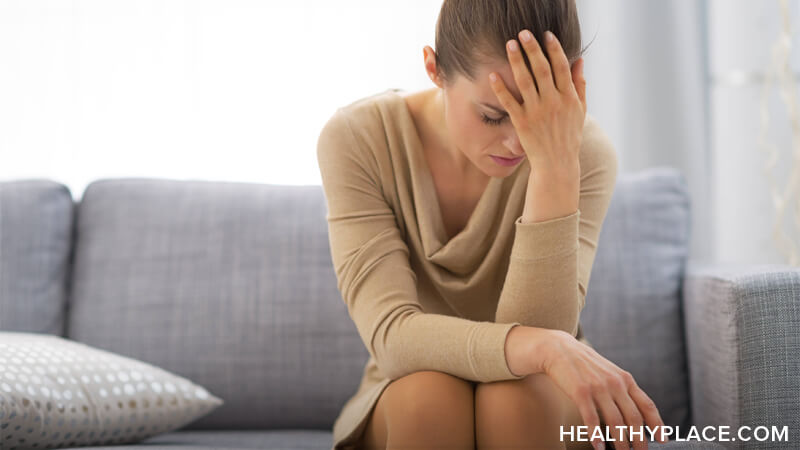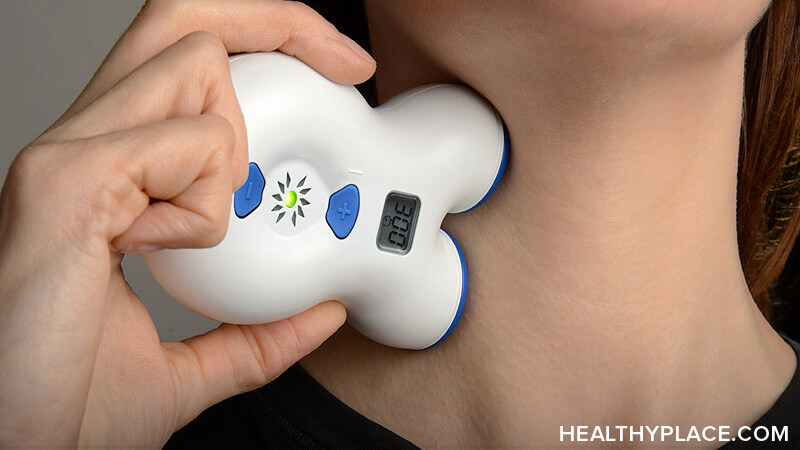
ECT, electroconvulsive therapy or shock therapy, may help severe depression if antidepressants or other depression treatments aren't effective.
Gold Standard for Treating Depression (part 26)
For some people, taking antidepressants, working with a therapist and making personal changes is not enough to find significant relief from depression. The following alternative depression treatments are sometimes used for severe depression that does not respond to more conventional treatments and may be an option for you if your depression is persistent and does not improve with more traditional treatments.
ECT (Electroconvulsive Therapy)
Before you read the following section, you may need to let go of the often negative portrayal of ECT seen in movies or sensationalized in books. ECT is a proven and often used treatment for serious depression as well as for depression that has not responded to the more traditional depression treatments.
ECT is a procedure where a short application of electric current to the brain induces a seizure. Prior to ECT treatment, a patient is put to sleep using general anesthesia and a muscle relaxant is given. Electrodes are placed on the patient's scalp and a finely controlled electric current is applied which causes a brief seizure in the brain. Because the muscles are relaxed, the seizure will usually be limited to slight movement of the hands and feet.
Patients are carefully monitored during the treatment. The patient awakens minutes later, does not remember the treatment or events surrounding the treatment, and is often confused. Some statistics state that this confusion typically lasts for only a short period of time while others show that some people given ECT have persistent short term memory loss.
When is ECT Used?
ECT is used as a last resort and is often a very effective and much-needed therapy. Patients who receive ECT are often severely psychotic as well as depressed and pose a threat to themselves either from suicide or life-threatening anorexia. ECT is one of the fastest and most effective ways to relieve symptoms in severely depressed or suicidal patients so that more traditional therapy can then be used.
How Does ECT Work and What are the Concerns?
What is known is that there are changes in all three neurotransmitters- serotonin, norepinephron and dopamine when ECT is used. ECT and antidepressants work in the same way. Antidepressants normalize neurotransmitters and ECT does the same, but much quicker. In terms of safety, ECT is considered very safe by many in the medical community. Some statistics report that there can be short term memory loss for about six weeks. Other statistics that do not support the above finding strongly suggest that the memory loss can be severe and persistent. This does not mean that ECT is necessarily dangerous or should not be used. It means that a person receiving ECT should know the risks.
ECT is usually followed by psychotherapy and medication under a psychiatrist's care. Unfortunately, ECT is not a permanent treatment and may have to be repeated to maintain stability. After a person recovers, there is a very high relapse rate unless they continue to take antidepressants. Another alternative is maintenance ECT on an outpatient basis.
Am I a Candidate for ECT?
Dr. John Preston, author of The Complete Idiot's Guide to Managing Your Moods notes, "ECT is indicated for people who are hospitalized with very severe depression as well as for those who have experienced long term, severe and persistent depression that has not responded to more traditional treatments. It is not to be taken lightly and is not usually given for milder depression.
Another problem is that ECT is very expensive. The person receiving treatment usually stays in the hospital for three weeks. If someone is depressed and severely psychotic, they need to be in the hospital anyway so this is often a good time for treatment. Before ECT is considered, you should discuss all available treatment options for your condition with your doctor."
ECT may be an option for you if you have spent years trying to successfully treat depression with only partial relief.
Suggested Reading: Shock: The Healing Power of Electroconvulsive Therapy by Kitty Dukakis, Larry Tye
video: Depression Treatment Interviews w/Julie Fast









